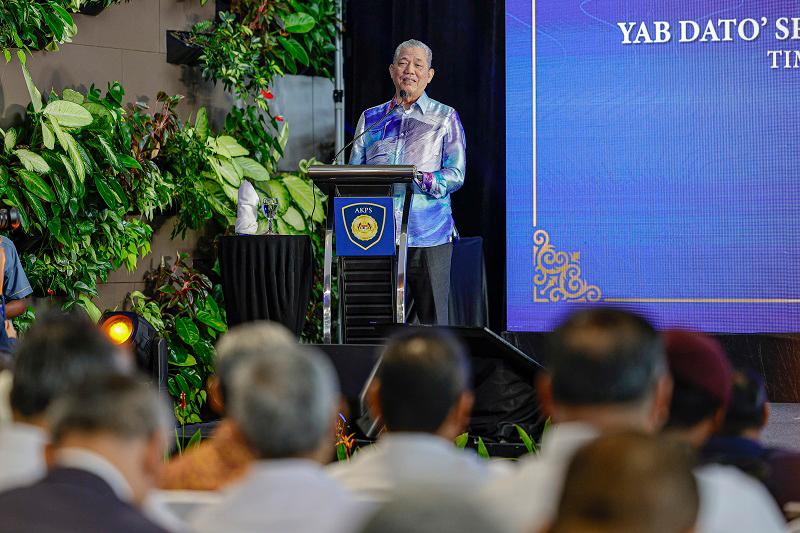SEPANG: The Malaysian Border Control and Protection Agency (AKPS) marks the government’s unwavering commitment to creating a smooth and efficient border control framework, said Deputy Prime Minister Datuk Seri Fadillah Yusof.
The AKPS launched today becomes the sole border control agency and brings together expertise and resources from various government agencies, including Immigration and Customs, to single-handedly streamline operations at the country’s international entry points nationwide.
“The era of globalisation that lies ahead of us demands that all parties be more prepared with a robust and integrated border management system.
“Various efforts and initiatives have been pioneered by the government to ensure Malaysia remains a competitive trading nation with efficient and integrity-driven service delivery at the country’s entry points,“ he said when launching AKPS here today.
Also present were Home Minister Datuk Seri Saifuddin Nasution Ismail, Communications Minister Fahmi Fadzil, Selangor Menteri Besar Datuk Seri Amirudin Shari and Inspector-General of Police Tan Sri Razarudin Hashim.
Fadillah said the formation AKPS is underpinned by five main objectives - to unify various border enforcement functions under one chain of command; facilitate trade and travel activities; strengthen security aspects; improve service delivery; and enhance the protection and safety of the country’s borders, including air, sea, and land domains, through integrated collaboration between the agencies involved.
He added that AKPS is vital for Malaysia to reaffirm its commitment to regional cooperation and integration, particularly as the country chairs ASEAN in 2025.
“By enhancing border control capabilities, we not only safeguard sovereignty but also ensure smoother cross-border movement within the ASEAN region.
“This is important as we work towards a more connected and prosperous Southeast Asia. Furthermore, the operation of AKPS will face greater challenges with the involvement of delegations from various ASEAN countries attending conferences in Malaysia,” he added.
He also emphasised that AKPS plays an essential role in ensuring the country’s borders are friendly and efficient, especially with the upcoming Visit Malaysia 2026.
“We expect an influx of tourists to experience our rich culture, diverse natural landscapes, and the warm hospitality offered by Malaysia.
“By streamlining processes and improving services at entry points, we will create a positive ‘first impression’ for visitors coming to our country,” he said.
Fadillah also pointed out that the use of artificial intelligence (AI) in national border control strategies is considered crucial.
He explained that using AI in border control systems and applications at entry points will help officers monitor, assess, plan and respond to threats and challenges effectively.
“For example, coordination and data analysis from closed-circuit television (CCTV) cameras and baggage scanners equipped with AI technology will enhance officers’ ability to develop risk analyses at entry points,” he said.
“This proactive approach can assist agencies like AKPS in intercepting potential threats before they occur, thus increasing overall security at the country’s entry points and borders,” he stressed.
Additionally, Fadillah noted that AI-powered data, such as facial recognition and intelligent document processing, will streamline the inspection process of individuals and goods by officers.
“This scenario will directly ensure that low-risk goods are expedited for clearance. This is crucial for enhancing the competitiveness of the country’s ports and cargo terminals.
“Based on data analysis, AKPS can also ensure optimal human resource planning and allocation, placing officers in critical areas,” he noted.
He underscored that the government is ready to invest in research and development to explore new methods and technologies that can further enhance the country’s border management capabilities.
“Collaboration with academic institutions, private sector partners, and adopting best practices from other countries is crucial in this effort.
“By leveraging the best resources, AKPS will be able to stay ahead of emerging threats and ensure our borders remain strong and resilient,” he said.
AKPS was officially established following the enactment of the Border Control and Protection Agency Act (Act 860) on Oct 17, 2024, and is led by Datuk Seri Hazani Ghazali as its first Director-General.









